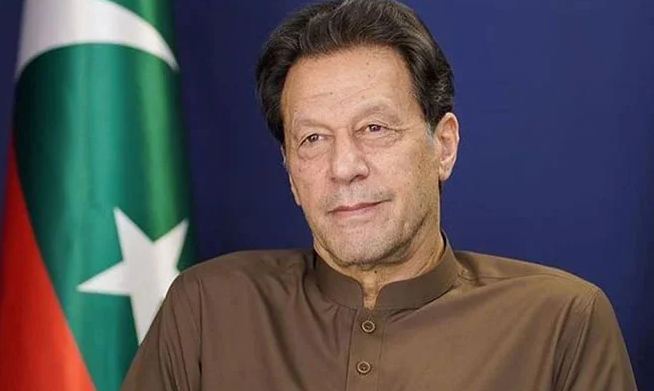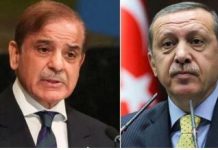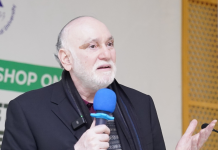ISLAMABAD: Pakistan Tehreek-e-Insaf (PTI) founder Imran Khan’s lawyer, Ali Zafar on Thursday boycotted the proceedings on a plea against the Supreme Court’s May 2022 order on Article 63(A), which deals with the defection of lawmakers.
A larger bench of the SC led by Chief Justice of Pakistan Qazi Faez Isa (CJP) is hearing the review plea filed by the Supreme Court Bar Association (SCBA).
The bench also includes Justice Amin-ud-Din Khan, Justice Jamal Khan Mandokhail, Justice Mazhar Alam Khan Miankhel and Justice Naeem Akhtar Afghan — who replaced Justice Munib Akhtar.
The case pertains to the top court’s decision, which said that the votes of the lawmakers who go against party policy would not be counted, and has been challenged by the lawyers body.
The 3-2 judgment, had effectively barred lawmakers from going against their party’s policy when voting in the parliament.
Three judges — then-CJP Umar Ata Bandial, Justice Ijazul Ahsan, and Justice Munib had voted in favour whereas Justice Mandokhail and Justice Mazhar disagreed with the verdict.
However, the SCBA, in its review plea, has contended that the ruling was “against the Constitution and equal to interference in it”.
During yesterday’s hearing, Pakistan Tehreek-e-Insaf’s (PTI) lawyer Barrister Ali Zafar raised objections to the constitution of the bench hearing the case saying that it wasn’t formed in accordance with the law.
“The law says that a three-member committee will constitute a bench”, Barrister Zafar said, adding that there’s no provision regarding the possibility of two members forming a bench.
The arguments refer to Justice Mansoor Ali Shah’s absence from the judges’ committee which is responsible for constituting benches for cases.
The current bench was created, as said by the CJP after they were left with no option to include Justice Afghan in the bench.
However, the court rejected the counsel’s objections with CJP Isa saying: “It is our unanimous decision to reject the objections on [constitution] of the bench.”
Furthermore, the PTI’s lawyer requested the court to meet jailed party founder Imran Khan for consultations.
“Please allow me to consult with the PTI founder regarding this matter,” Barrister Zafar said, explaining the necessity of discussing legal points with his client.
The court then approved the counsel’s request and directed the attorney general to facilitate the said meeting between the lawyer and the PTI founder.
A look into Article 63(A)
Article 63(A) of the Constitution of Pakistan deals with the defection of parliamentarians.
According to the article, a lawmaker can be disqualified on the grounds of defection if they vote or abstain from voting in the House contrary to any direction issued by the parliamentary party to which they belong.
However, this is restricted to three instances where they have to follow the party’s directions:
Election of the prime minister or chief minister;
Vote of confidence or a vote of no-confidence;
Money bill or a Constitution (amendment) bill.
Per the article, the head of the party is required to present a written declaration that the MNA concerned has defected.
However, prior to presenting the declaration, the head of the party will have to give the MNA concerned a chance to explain the reasons for defection.
Following that, the party chief will then forward the written declaration to the speaker, who would, in turn, hand it over to the chief election commissioner (CEC).
The CEC will have 30 days at their disposal to confirm the declaration. Once confirmed, the MNA concerned will no longer be a member of the House and their “seat shall become vacant”.

















